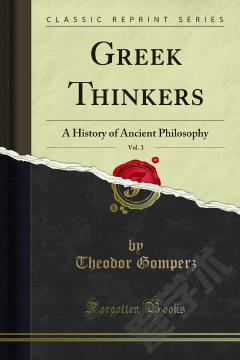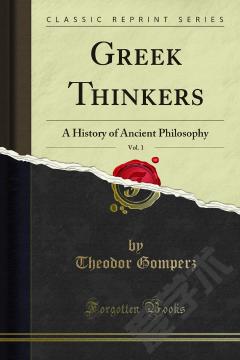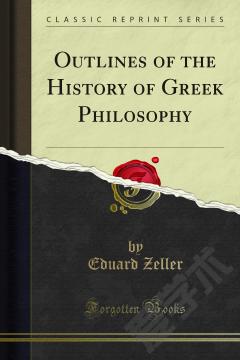Greek Thinkers —— A History of Ancient Philosophy
-----
ISBN: 9781440089343 出版年:2016 页码:397 Theodor Gomperz Forgotten Books
It is true that the difficulties of thought to which we have alluded were not removed by the new teaching, but only clothed in a different garb. They reappeared in the form of questions such as — How are the fleeting individual things connected with their eternal archetypes? Do they participate in them, or are they copied from them? And what is the precise nature of this participation or process of copying? To these questions Plato never succeeded in returning a satisfactory answer; but, as Aristotle remarks in the above-quoted passage, he left them to be investigated by others. But this is not the place to discuss the consequences of a doctrine whose origin we have not yet completely accounted for. We must once more draw the reader's attention to a fundamental tendency of the human mind, and to its far-reaching effects. Abstractions are clothed by language in the same dress as objects of perception. Both are designated by substantives, and perhaps could not be designated in any other way. In the untrained mind, the Real and the Thing are so closely associated, that in ordinary language the two terms are synonymous. The very word real is derived from res, a thing. Forces, qualities, states, relations, are regarded as entities having the nature of things, and, when they produce lasting impressions upon the mind, as living beings endowed with will — as gods and daemons. After the mythological comes an ontological stage, a naive realism (in the mediaeval sense.








 京公网安备 11010802027623号
京公网安备 11010802027623号